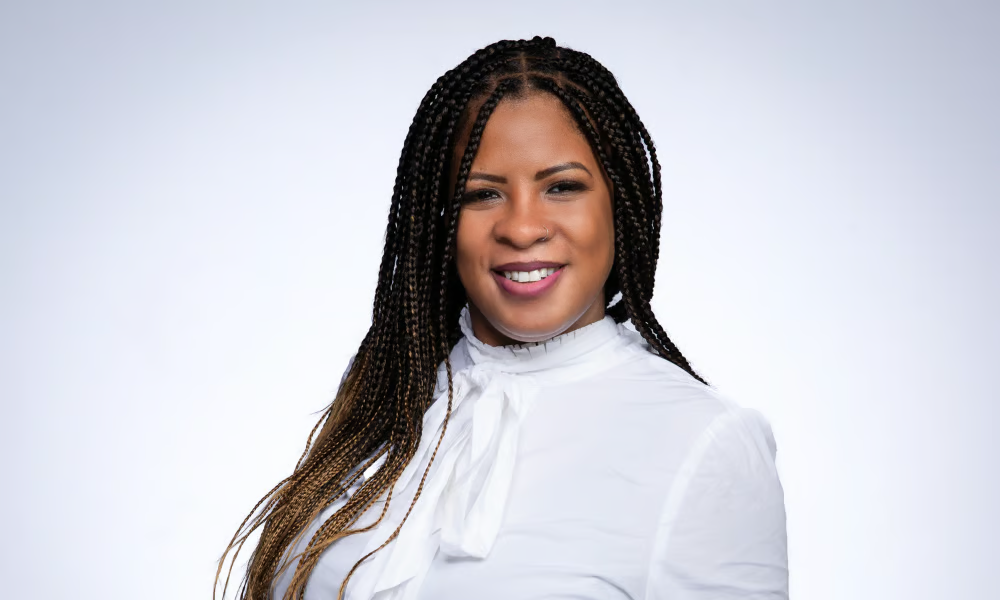It held a certain glamour anyway, she suggests

In her teenage years, Natalie Anderson (pictured) was drawn to two very different worlds which each held the promise of a potential career – finance and fashion, and while the latter might have seemed thrilling, it was the former which ultimately won her undivided attention. “Finance maybe seems a bit of a strange thing for someone of 16 to want to get into,” Anderson told Mortgage Introducer, as she reflected on her career to date. “I considered a number of different jobs. I'd always liked numbers and was actually one of few people who really enjoyed mathematics.”
Anderson’s formative years, growing up in East London, also played a part in the direction she took, that would ultimately lead her to where she is today, working as a self-employed mortgage broker, for Connect Mortgages. “I had a great childhood, but we didn't have a lot of disposable income,” she shared. “Investment bankers made a lot of money and it always looked very glamorous, so I think that's probably why money was at the forefront of my mind.”
A degree in business studies, with a major in accountancy and finance, took Anderson closer to her dream career, and despite a slight deviation into recruitment after university, she joined Barclays in 2006, where she would stay for over nine years, and establish herself within financial services. She scaled Barclays’ ladder to become a senior business manager within corporate banking - attaining substantial experience of dealing with firms in financial difficulty and working with them to develop strategies to improve their financial positions. “I loved working with business clients, from start-ups to larger businesses, and actually helping them meet their goals,” she said. “That suited me down to the ground because that's where my passion lies.”
Read more: Taking time off in the mortgage industry
Discovering whole of market options
Anderson became a mortgage broker in 2016, choosing to take a voluntary redundancy from Barclays, to explore her new role outside of the confines of the bank and relish the whole of market opportunities this would offer her. She hit the networking trail, attending industry expos to build her profile, and was eventually introduced to Kevin Thompson, sales director at Connect for Intermediaries. It was a career defining moment, as Anderson joined the firm in a self-employed capacity. It today gives her access to over 170 lenders. “When I embarked on my career as a broker, I was a bit blinkered,” she explained. “I just couldn't believe what a wide world of lenders there was out there and what they could actually do. It was absolutely incredible. You're constantly learning in this role - there's always a new lender coming on board, and new criteria.”
The biggest challenge Anderson has faced, she suggests, is establishing a consistent source of leads. “It's obviously important for you when you're self-employed,” she said. “You can't just rely on being handed leads. I've come from a background of business development where I've had to build up a portfolio of clients, looking after existing ones and bringing new ones on board as well. It can take a good six to 12 months to really get going, just getting to know all the lenders and all their criteria.
“The best business lesson I have learned is that people buy from people, as opposed to just going with a specific company. I'm a people person and it's about relationship building – it’s very key. A lot of people, I deal with, they're dealing with me because of me, because of who I am, and I think it's key to all businesses. I always put my best foot forward and really invest in keeping a relationship consistent through the years, and keeping in contact with clients, building a pipeline of business. Brokers should consider charging fees, especially for cash flow purposes, because of how long a case can take. Value your time, and know your worth.”
Anderson clearly retains a passion for her career, but she acknowledges that priorities change over time. “Of course money's always important, but I think as you get older, it becomes less so, and job satisfaction is always number one for me now,” she reasoned. “I still want and like to make money, but I think it's more important to be happy and satisfied, to gain a sense of achievement and know how what we do actually affects people and their lives.”



